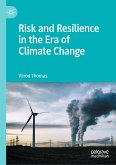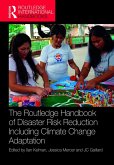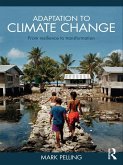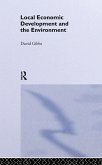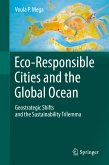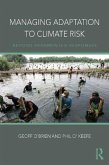The first is that accounting for the root causes, and not just their symptoms, is essential to slowing these events. It is therefore vital to link carbon emissions from human activity to the sharp rise in climate disasters globally. The second is that growth economics and policy must factor in the failure of governments and businesses to tackle spillover harm from economic activities, as seen strikingly with global warming AND BIODIVERSITY LOSS. With climate risks rising, this calls for a fundamental revision of the framing of growth in the teaching and practice of business and economics. And third, prevention must become a far bigger part of resilience building, with preparedness to avert or handle tougher eventualities built into interventions. Emphasis on prevention deems disaster recovery as not just returning to how things were but building back better.
Dieser Download kann aus rechtlichen Gründen nur mit Rechnungsadresse in A, B, BG, CY, CZ, D, DK, EW, E, FIN, F, GR, HR, H, IRL, I, LT, L, LR, M, NL, PL, P, R, S, SLO, SK ausgeliefert werden.
The narrative in the book adeptly intertwines mounting scientific evidence with the pressing need for policies that reconcile economic growth with the mitigation of global warming's impacts. The author's adept articulation of the disconnect and his emphasis on its profound implications will impress readers, facilitating a compelling exploration of the current milieu. One of the book's strengths lies in its ability to dissect the multifaceted nature of this gap, scrutinizing the broader ramifications for economic policies. (Muthukumara Mani, global Policy, globalpolicyjournal.com, April 4, 2024)
This book is about securing the future of these vulnerable populations and ensuring their right to development gains, and in broader scheme, ensuring equity and that no one is left behind. Thomas draws on his rich experience to build the framework for this construct. The author has established what needs to change to address risk and embed resilience in the era of climate emergency. The multi-layered assessment is extremely helpful in understanding why these changes are needed. (Preeti M Bhandari, Ecology, Economy, and Society - the INSEE Journal, Vol. 7 (1), January, 2024)
Based on three decades of the author s work at the World Bank and the Asian Development Bank, and underpinned by extensive academic research, the book is full of practical case studies as well as conceptual frameworks for understanding resilience. The importance of these issues will only increase as the climate crisis progresses and extreme weather events inevitably become more commonplace; this will serve as a valuable guide to those working in the field. (Simon Sharpe, International Monetary Fund, imf.org, December, 2023)

